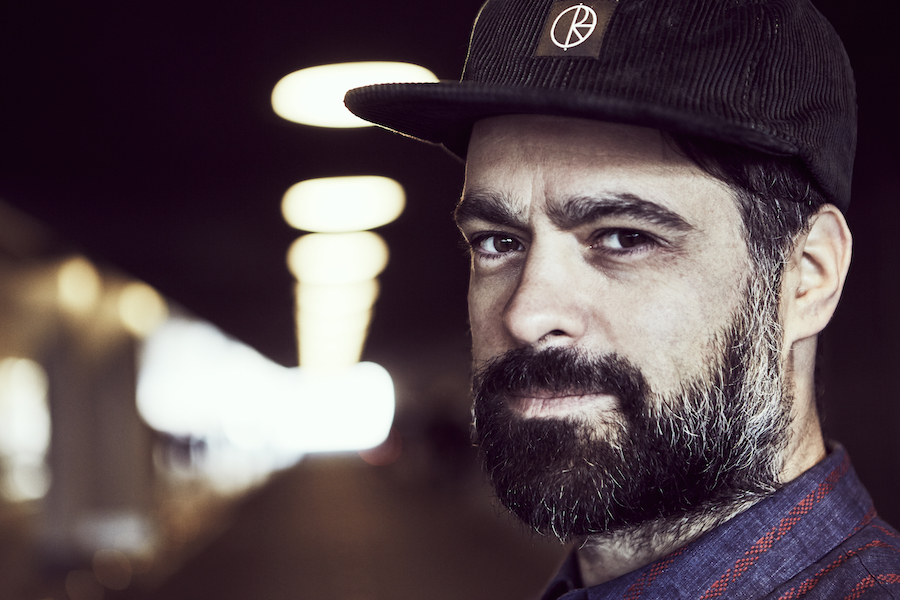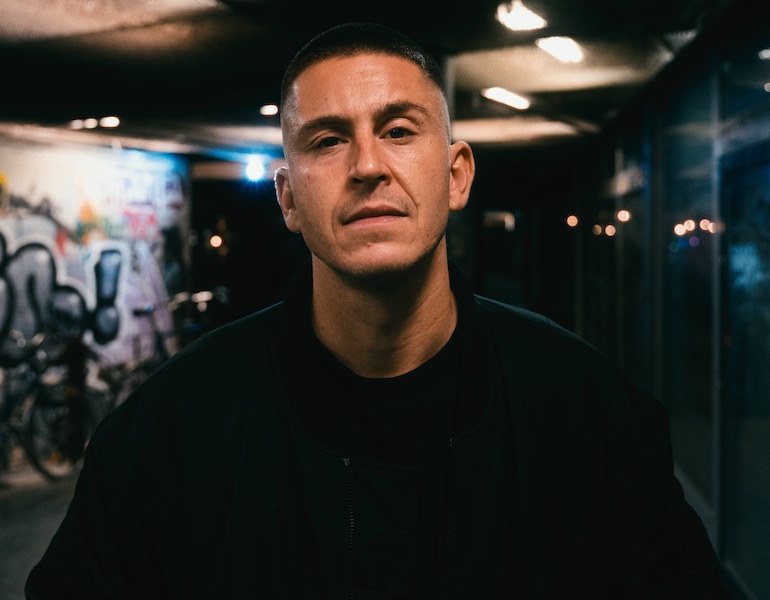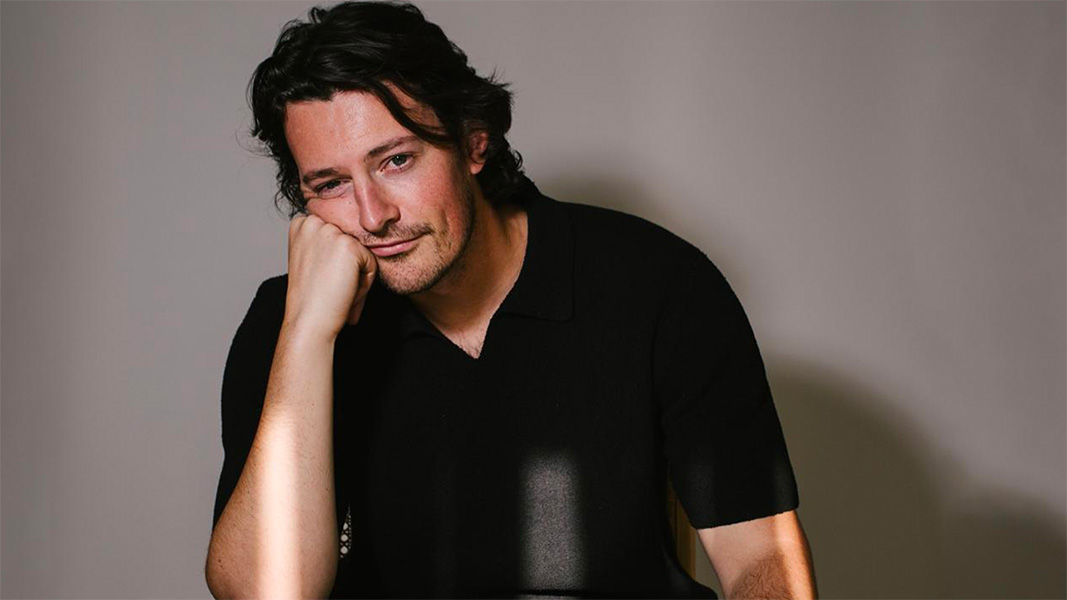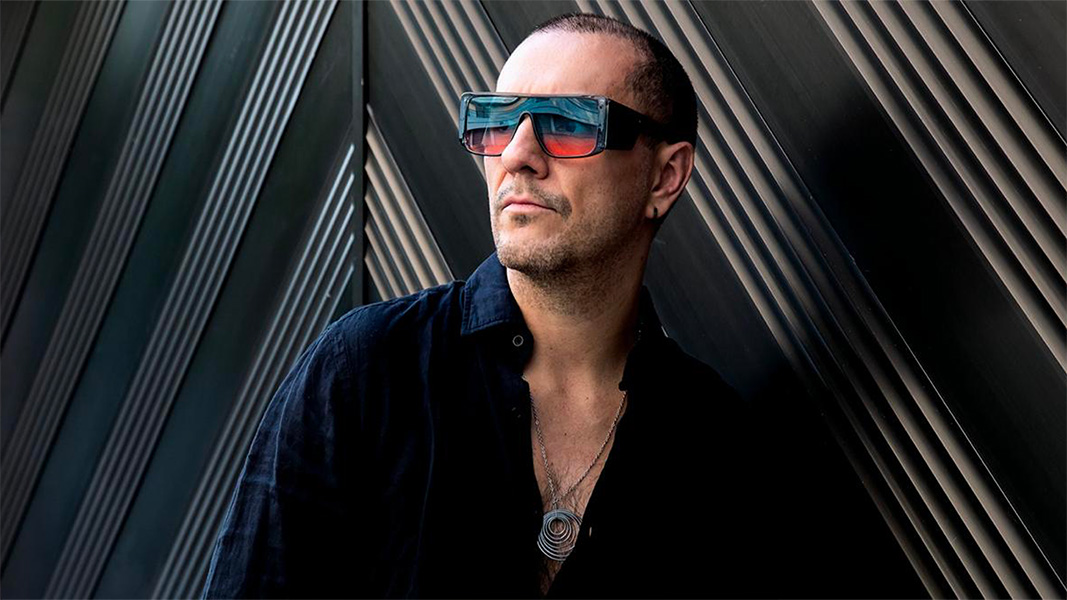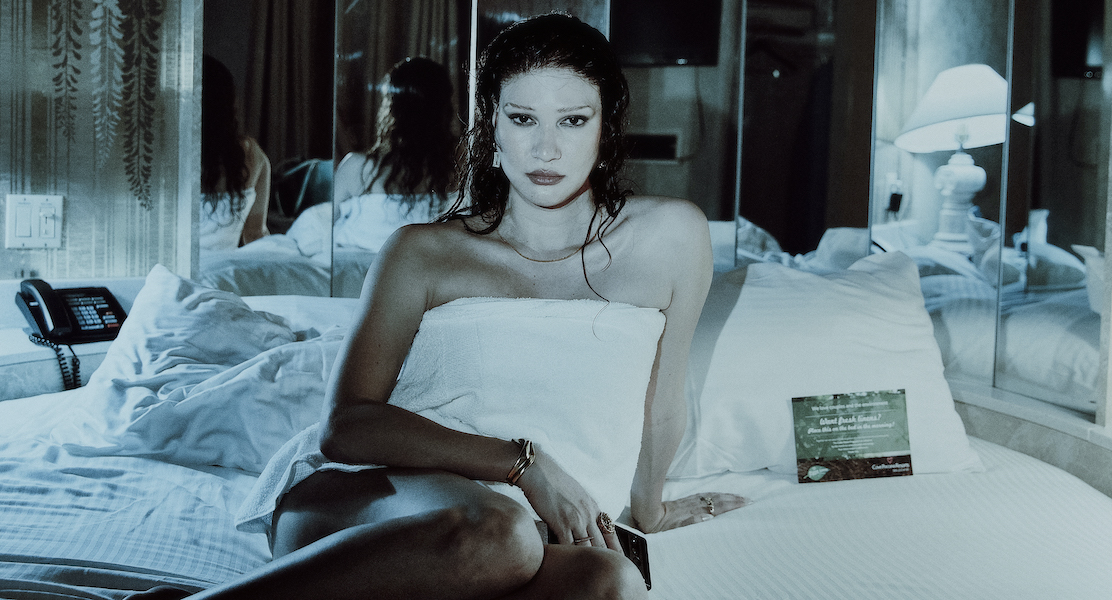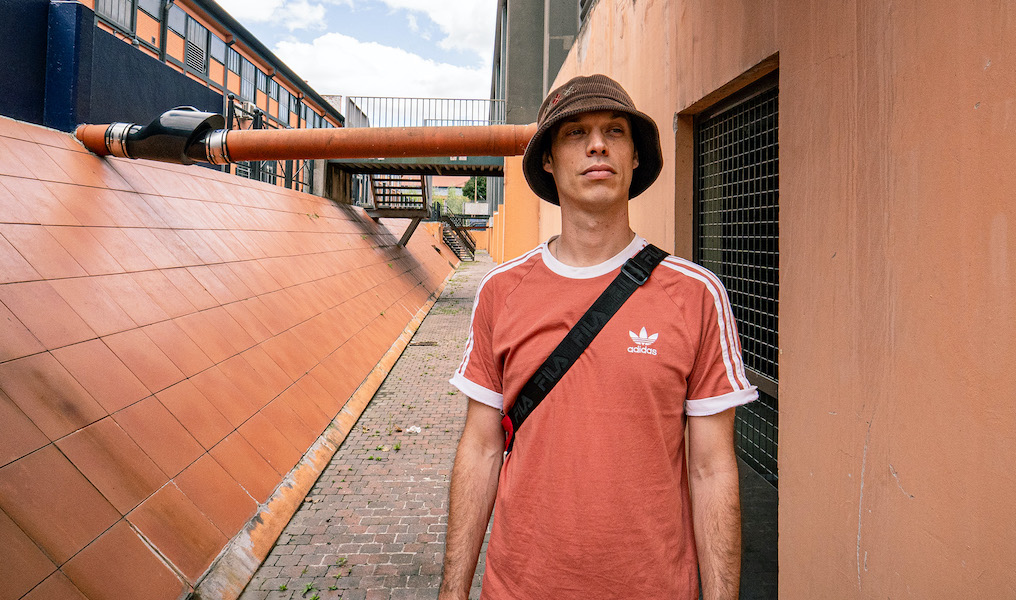The next Lumberjacks In Hell release takes a surprising turn with an eight-track LP by Berliners Panna Cotta. French-born Alex Arslan, and Italian Riccardo Pirotto met somewhere in Berlin years ago and then decided to make music as Panna Cotta, and having the self-titled Mini LP on Marcel Vogel’s Lumberjacks In Hell. Their debut album is the sonically sweet and heartfelt audio delight entitled ‘Sunrise’, produced, and curated with blissed-out, sun soaked, love filled days in mind. The productions are sitting somewhere between sultry disco and polished pop with an electronic feel to it. For my personal taste the majority of the tracks has a Balearic edge, and that’s outstanding these days.
Opener ‘Tasting Sugar’ takes us on a psychedelic cosmic journey, while ‘Sweet’ picks up the yacht rock pace a touch. ‘Childhood’ with its slo-mo vibrations, encourage the dancers to sway, while ‘Nobody’ surprises with its broken beat breakdown and impressive drum solo. For those of you who expect another Chaka Khan cover with ‘I Feel Love’ plays with analog synths and steady drums, with flecks of acid beneath the uplifting vocal, all floating along on a killer groove.‘ Sunrise’ allows the honeyed vocal harmonies to take centre stage amidst the blissed-out soundscape, the remix of label honcho Marcel Vogel with its sweet acidic elements and funkiness is my pick of the lot. All in all a very special outing!
WWD: It’s great to speak to you Marcel. Where are you at the moment and how are you spending you day?
Ah thanks for having us. Did we have a two-year break? It’s so confusing. I just brought the kids to daycare and went for a little bike ride in the North of Amsterdam to make the best use of the weather, listen to a podcast, to clear the head and focus on remixing today. And this interview of course.
WWD: What can you see out your window?
I am currently in my studio and see the colorful houses of our neighbors.
WWD: We know you’re living in Amsterdam, but where are you from exactly?
I am German. My hometown is Paderborn, which became wider known for their Soccer team and their Erzbistum.
WWD: You spent time living in Berlin. Did you head there to this musical mecca for the sake of sound?
Yes, that was the idea. I first moved to Frankfurt / Main and it was a logical step from there to go to Berlin in 2003 to look for more opportunities to work in music. Like most of my relocations, I make these decisions by intuition. I didn’t know much about Berlin to be honest other than that it seemed very exciting. In retrospect I probably missed out on a lot of opportunities while I was living there because I didn’t drink or do drugs and it was all about the music. But I have a very specific taste and Berlin has a very specific sound and at that time the two didn’t necessarily match very well. I am still grateful for everything I’ve experienced there, including the monthly Jazzanova hosted club night Kaleidoscope and getting my feet wet as a promoter, something that while exhausting was also always a well of inspiration for me.
In retrospect I think I should have moved to London instead but the idea seemed too overwhelming at that time.
WWD: What took you to Amsterdam initially?
Music of course. I’ve read an article in Straight No Chaser about Theo Parrish being blown away by a set by DJ Spinna at Paradiso. I wanted to find out what was going on in Amsterdam. I was very intrigued by that and I gotta say, I never regretted my decision to come here. I also had the chance to studying Audio Engineering at the SAE here.
WWD: What endears you to the city that you call home now?
I love the record stores. Rush Hour, Red Light Records, Waxwell and many others make sure that I say inspired. Finding the right sound for me has always been the drive for me to relocate. It’s one of the reasons I left Berlin. I didn’t feel inspired by the record stores.
Me and my family just moved to Amsterdam Noord which turns out to be Paradise for us. I spend a lot of time on the bike just biking around and taking in the beauty of it all. The trees, the water and the cute houses.
I love “the sound of Amsterdam”, DJ’s like Antal, Kamma & Masalo, KC, Mendel and Young Marco are very inspiring to me. But there are too many to mention. People are just so deep into sound here, and they have the festivals to show for it.
WWD: It would have been great to have had this conversation with you in person over a coffee. Where would be a good place we could have done that in your city?
I frequent A Volo on Haarlemmer Plein quite regularly, my friend Genarro is the best host you can imagine. I have a a deep relationship with the vegan restaurant Hearth in Oost where I DJ regularly. It’s a small restaurant and listening bar with great energy. Overall there are a few nice spots, that are not overrun by tourists but naturally I like to go where I know the people and feel at home.
WWD: How’s is the mood in Amsterdam right now?
I kind of don’t know. The sun’s out for a few days. I am pretty good as long as I am not reading the newspaper. I feel Amsterdam was a good place to be during the pandemic. There is sizzling in the air as things are about to open up again, club nights and festivals are being announced and it seems people are going for it.
WWD: As a touring DJ, the last 2 years must have been a testing time.
Yes of course. The silver lining is the time I’ve got to spend with my son. My wife held it down financially, I basically had no income for two years. And then we had a daughter six months ago and moved house. It’s all been a bit crazy, confusing, beautiful and frustrating. A big mix of emotions but also a time of growth and introspection. Even though it’s been tough, I am also aware how blessed I am .
WWD: Our musical journeys can begin before we even are aware of it. When did your journey begin in your mind?
I forever experimented with sound I suppose. Be it my mom’s record collection, really crappy music programs on my Commodore C64 or making compilation mixtapes of my favourite tunes.
WWD: How old were you when you first started to collect records? What tracks/ artists were you first attracted to back then?
Well, I think I’ve started buying Hip Hop CD’s around age 12/13 perhaps. Probably inspired by my older sister and Yo MTV Raps and the German pendant VIVA Word Cup and Freestyle. Needless to say, I videotaped loads of Videos to VHS.
I got into Vinyl around age 16 inspired by a few DJ friends from my hometown. It’s been a very interesting journey since then. DJ culture and music culture has been a vehicle for me to see the world and meet wonderful people.
WWD: Was hip hop your first love? Were you much of a scratcher?
Haha, yeah Hip Hop was my first love but as I told somebody recently, I was too dumb to scratch. I just never figured it out.
WWD: Do you remember what you used to play on in the early days? What was your set up?
The very first two turntables were a Technics belt drive with a pitch wheel and a belt drive DJ turntable. I think it was quite epic that I manage to sometimes not ruin a mix on those. My pet peeve are those Gemini mixers everybody had at that time because they always broke after 3-6 months, which I am still angry about.
WWD: When would you say was your house music awakening? What record sticks in your mind from that time?
Oh that’s easy. My friend Booming B. ( he loves it when I mention his name ) made a mixtape and it had DJ Sneaks Message of Love and DJ Tonka’s Feel on it. Those two cuts baptised me. We actually had two little record stores in Paderborn and I managed to score a lot of Disco House during that time. Two really important records for me were Nick Holders – A Night At The Disco on K7 which set me up to look for Disco samples by Sister Sledge and Affinity and the other was the most legendary House comp of all time, Derrick Carter’s Many Shades of Cajual. I have to thank Olcay for forcing it on me when it may have gone over my head a little bit. But to this day I still play tunes from it. They are all perfect.
WWD: There is always a hefty helping of soul ever-present in your sounds and you are well known for your gospel selections. Where does this love of gospel come from? Does it come from a spiritual place?
Ah thank you, this whole interview goes a lot deeper already than most. That’s nice. I’ve recently talked about it how we receive subliminal messages through music and do you remember how Moodymann always talks about exposing you to his environment? And he’s using loads or Gospel influences, samples, time signatures, drums, claps and references and it just stuck. A small black church and You Blessing me. Then there was Pittsburgh Soul Authority and DJ Spen and all his projects. It’s just something about the energy and uplifting spirit but also the truthfulness that deeply speaks to me.
From my understanding most of Black Music from America is informed by the Church and Gospel Music. There wouldn’t be no soul, funk or disco without that and because of that also no Techno and House. It’s debatable, I am no expert on this. But it seems most Singers and musicians of the 60 and 70’s were Church trained.
I started collecting a few Gospel records here and there and also a few sermons in the early 2000’s when I was living in Frankfurt and experimented with sampling them. It’s a journey. Later on, I’ve realized how Chicago DJ’s incorporate those sounds in their sets, alongside Disco and House. Then there is always the song du jour that crosses over, such as Stand on The Word or Oh Zion. It took me a while to start finding my own cuts and the deeper I go, the more I realize how much I don’t know. But the biggest gift is the musicality of those records, that just takes my breath away. If you listened to my mixes you know what I am talking about. Where other forms of music slim down their breakdowns and vocal harmonies, great Gospel goes all out and makes you feel the holy spirit.
I often sit with my headphones and listen to these records full of love for the gift of music.
WWD: Would you say you are more of a DJ than a producer, or you comfortable in both roles?
Yeah, with 25 years of experience I must say I am definitely more a DJ also because everything I do as a producer and remixer is being informed by my DJ persona. That’s where all inspiration comes from.But I won’t stop improving myself.
WWD: What was the first track you ever produced?
The first track that came out? I think that was Body to Body on Intimate Friends. A disaster for my ego at the time, I was so scarred people would hate it but I have a few friends who actually own and love that 7”. That’s blowing my mind. I only made 155 of them, just because I didn’t believe in it. And I probably know 5-10 people who actually really love it. And I do now too.
It’s a big lesson I took from it. The artist usually is very bad at judging their work. Experiences like that over the years helped me to build up my confidence and trust my ears. If I like something it’s likely somebody else will like it too. And that’s the foundation you build a production career.
WWD: Where were the first places you DJ’ed?
I even managed to play a few gigs in my hometown. I guess the competition was less fierce, not everybody was a DJ yet. But nothing too memorable really. Small and friendly gatherings. I think the best advice I can give to upcoming DJ’s is to promote your own parties, which I started in Berlin in 2003. Create your own and put in the legwork.
WWD: You are known for setting disco dancefloors on fire! Disco has to be one of the most fun genres for any DJ to play. Why do you think that is?
The musicality of course. The positive energy. The rhythms. I like when things change energy a lot. I like to find hidden gems too.
WWD: When Lumberjacks in Hell was born in 2010, what was your motivation to start the label?
Mike Huckaby (RIP) once said: people start labels because they want to get involved and that’s what my ambition was. Being a part of this movement I love so much, DJing and record collecting was the first step, organising parties and booking DJ the next. Then I got my MPC 2000 XL and for over a decade I failed at creating something noteworthy. The label was another way in. As you know it started with a few of my edits. It was also born out of Soundcloud. 2008/2009 it was such a supportive community and I felt inspired to just take the leap.
As well as being a great DJ, you’ve been a stellar A&R, attracting artists like Karizma, Jamie 3:26 and the late Soulphiction. What was it like to work with Soulphiction and do you think he had a special gift as a producer?
We’ve never met. Which I strongly regret. But I especially loved his label Philpot (named after the legendary Larry Levan) and Soulphiction was the one German producer who nailed the Detroit and Chicago sound as well as the originators. I think that was freeing and motivating, that it was possible to attempt to create that sound without sounding corny.
All my interactions with him were extremely pleasant and nice. From what I can tell, he was extremely humble and wonderful.
WWD: Tim Jules crops up a lot in your productions. How far do you guys go back and tell us about your relationship?
Jules and I DJed together maybe 10 years ago at the famous Canvas and somehow we ended up doing a session together. And another one. And another one. We just have a very good click and he often allows me, to play him as an instrument. It’s a very symbiotic relationship when we make music. I am very blessed that he crossed my path. He is a self taught jazz pianist with an endless amount of musical ideas.
To be honest I’ve worked with a whole array of people like Khadija and Khalil Anthony who would allow me to try things out and thus helped me grow. Jules has also become my piano teacher and is opening up my music theoretical knowledge.There are traces of him to varying degrees on most of my productions.
It’s also noteworthy that Bobby van Putten aka Planty Herbs has mixed almost all my music, apart from some ventures here and there.
WWD: The artwork on LIH is always really striking. Is it the same artist you have used on all releases?
Most of the artwork has been done by Christopher Keys who has died in 2019. He was an artist from Johannesburg and believe it or not we always only communicated via mail or social media. I think I owe him a great deal in the success of the label and its identity. It’s safe to say I am still mourning his loss. He always went out and beyond what would have been economically feasible for me. Meaning: the hours he spent creating the artwork, never matched what I was able to pay him. Often we would clash over deadlines, sometimes for months and then he would send me something and it would simply blow my mind.
We found each other by chance on DJHistory.com when I first moved to Amsterdam and was looking for a studio. In a weird turn of events he hooked me up with Juju&Jordash with whom I shared a studio space at Volkshotel for about two years. And somehow Chris became my designer, defining our face for a decade. I understand how wonderful and special that was.
WW: Your other label – Intimate Friends – was this about before LIH? What was your rationale for this labels output?
It was founded in 2013. For me it’s quite clear, it’s just a totally different energy. While some releases could have appeared on either label, the root always was very clear to me. Intimate friends was way more experimental in the scope of style and BPM.
WWD: What was the last release you put out on Intimate Friends, what’s happening with the label now?
The latest release was actually the Planty Herbs album, which was very dope. That’s maybe 3 years ago now. I think my conclusion is, that you best don’t mix styles when you run a relatively small label, stick to one sound and better make another label if you wanna do Hip Hop and one for house. My experience with trying to do both the way I did it makes me feel that a lot of the records didn’t reach their maximum potential and that makes me feel guilty towards the artist and their work. It has been an experiment and I guess sooner or later I will get back to it. I really enjoy releasing other people’s music but I am also strapped for time with two kids at the moment.
WWD: Your album ‘Being Human’ came out on IF. Was this Marcel Vogel going back to his roots? How much did you enjoy being able to flex in this musical direction?
Yes and no I suppose. It just was what came out naturally. It was also my first output as an artist. But I just enjoy being creative. At the same time, “Being Human” is also a compilation of sorts, because two of the tracks had been previously released. It was a form of closure, so I could move onto the next. I often need that. I need to release the music I ve been working on, so I can get it from the hard drive and out of my head.
The most satisfying part of it was working so closely with Khadija and Tim Jules. In just under a week we created most of the songs and I finished it up later. I LOVE WRITING POETRY and that’s what we did. And I love writing from the perspective of other people when I am around them and they give me a melody and the words just come to me. It’s such beautiful process. I won’t pretend I am great at it but I love it. Khadija singing my words is just wonderful. Or anybody else singing my words. Maybe it’s not high art but it is deeply rewarding.
WWD: The LIH label night has graced a lot of great clubs in Europe. Are there some label nights planned soon?
Yes, we are finally back at touring. The Nomads Festival in Amsterdam has been announced and I am glad to be back in Paris next month. There are a bunch of things in the making and if you keep your eyes locked on my instagram you won’t miss any of it .
WWD: Moving on to your new project on the label. What can you tell us about the artists Panna Cotta and how did you hook up with the guys?
I don’t even remember who reached out to connect me with Alex. I am always a bit surprised but I suppose people associate me with a certain vibe by now. I managed to make a few nice remixes for Laseech, Phenomenal Handclap Band and Jaguar Jaguar that often try to keep the essence of the original track intact, while making it working better in my DJ sets.
Alex and Rikkardo are two extremely sweet and devoted musicians from Italy and France residing in Berlin, where they are part of the ever-rowing musician scene without a background in DJing. So, like “real” musicians. Rikkardo is playing drums and Alex sings and plays synths. I am really excited to see them blossom, their dedication is magnetic. Mind you, this is their first release and they put together all the music, artwork and even a video. This is only the first taste of what’s to come for them and I am always really excited about debut releases. I think it’s incredibly special to help a debut artist onto the scene.
WWD: Tell us a little about the tracks on the Panna Cotta EP and what attracted you to the album?
I love Rikkardo and Alex focus and determination. They are so stern and devoted. The music is just great. I am a very versatile DJ, playing in very different circumstances, so a record like this is just a natural fit for me.
WWD: Quite a different and unexpected flavour for the label, right?
Haha, I disagree. We always took swings left and right. How about Andy Comptons ‘Bunny Chow’?
WWD: You have reworked the remix of ‘Sunrise.’ Tell us what you added to the track?
In a way, I’ve tried to make it a bit more Hip Hop and stompy. I love those 100 BPM loop disco cuts and that was my inspiration. I ve added some appreciated synths, some Juno 106 and I suppose I ve changed the arrangement a bit. Alex had critiqued me heavily for the arrangement but the way my mind works, I am open to a lot of things. If you wanna have a listen, traditionally you would start with less energy and build up to the release. I can’t recall how it happened, because the remix is a year old by now but energetically I start more intense on the peak and then release all through the rest of the track. I find it quite hypnotic what’s happening and quite beautiful how Alex voice ends up being this magical counterpoint.
I think when I work like this, same as my remix for Jaguar Jaguar, it’s about getting lost in the grooves and just moving with it, forever really. It is what it is, I am not mad if people don’t get it. It’s an amalgam of the music and sounds I am interested in and I believe there is room for this and should be room for this.
The advantage of not knowing what you doing is, that you also don’t know the rules that you are supposed to stick to. So you end up just operating on your feeling (as a DJ) and hopefully end up with something new and exciting.
WWD: What else are you working on at the moment Marcel?
I have four tracks in the can with the Uber talented LYMA that blow my mind. I dare say it, my best work yet and I blame him. We will have to figure out what to do with it. Are we gonna do an Album or a 12”. It looks like we might put it out on Lumberjacks, as several Labels have passed on it because it’s “not suitable”. But to be honest, I’ve always done my own thing and I feel it has worked out for me so far.
I am also remixing a few things at the moment and always working on new productions.My ideal way of working at the moment is to work with a handful of production partners with a different sound, so I just keep making sketches and then pitches to the right person. I rather wanna focus on my strengths than being a jack of all trades at the moment.
Also we start building a studio at home this month and I aim to get much deeper into production and remixing than I already have.
WWD: How do you like to pass the time when you’re not behind the decks?
Number one is of course my family. I feel truly blessed and also think that they are responsible for my general happiness especially during the pandemic. I found myself biking around Amsterdam a lot recently and especially since we have moved to Noord. I used to play a lot of online chess but didn’t have so much time recently. My preferred form is called bullet, where each player has only 1 minute for the whole game, so 2 minutes in total. It’s highly addictive to me. And I listen to a lot of podcasts such as Questlove Supreme and Tim Ferris. I used to read a lot but the last two years have just been very busy. I guess that’s where the podcasts took over.
WWD: What keeps your feet on the ground?
My family, but I am also very humble and thankful.
If you hadn’t devoted your life to making music, what do you think you might have done?
I like to believe I would have become a writer but I haven’t proven this hypothesis yet. It’s not fully off the table yet.
WWD: Thanks for your time, Marcel.

